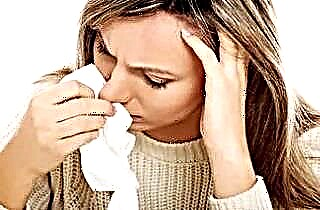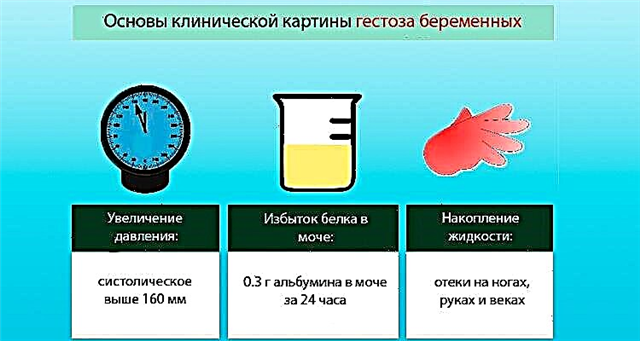Tonsillitis (tonsillitis) is an acute or chronic inflammation of the tonsils and tonsils. With this ailment, the lymphoid tissue in the nasal and oral cavity becomes denser. Tonsillitis in children, which should only be treated after consultation with a doctor, is just as common as in adults. To know how to properly treat such a disease, we recommend that you familiarize yourself with its main types and causes.
Types and causes of the appearance of infantile sore throat
As clinical practice shows, most often this disease develops as a result of the penetration of pathogenic microflora into the child's body. These are fungi, viruses and bacteria. Depending on the type of pathogen, the following types of tonsillitis can be distinguished:
 Bacterial. In 90 percent of all cases of bacterial tonsillitis, pathogens are beta-hemolytic streptococcus, Haemophilus influenzae, Staphylococcus aureus and other pathogens.
Bacterial. In 90 percent of all cases of bacterial tonsillitis, pathogens are beta-hemolytic streptococcus, Haemophilus influenzae, Staphylococcus aureus and other pathogens.- Viral. This type of ailment is caused by influenza viruses, rhinoviruses, adenoviruses, and so on. As a rule, in children (especially in small ones - up to three years), it is viral sore throats that are most often diagnosed.
- Combined (viral-bacterial). With this type of tonsillitis, the child's body is simultaneously affected by viruses and bacteria. They strongly hit the general, as well as local immunity, causing the appearance of extensive foci of inflammation.
- Fungal. Most often, the culprit of such a sore throat is a fungus from the Candida family. As a rule, this diagnosis is given to young children.
- Parasitic. This type of tonsillitis is uncommon and is caused by amoebae in the mouth.
Viral sore throats are transmitted by airborne droplets. Therefore, a baby can become infected in any place where there are many people (public transport, kindergarten, school, etc.). As for the bacterial variety of the disease, it does not have the aforementioned ability. The main cause of infection is excessive close contact with a sick person through dishes, saliva, personal accessories (towel, toothbrush), and so on.
With tonsillitis, children's tonsils are not able to cope with the pathogen on their own due to the underdevelopment of immunity. Therefore, children get sick even more often than adults, especially in the autumn-winter period - the time when the body's defenses are maximally reduced.
Symptoms
The reaction of children's tonsils to pathogenic microflora is almost instantaneous. For this reason, the disease develops incredibly quickly. Already after 24 hours from the moment of infection, the first clinical signs appear. The following manifestations of the disease should be named as key:
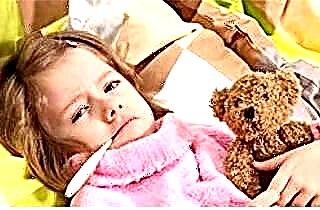 sore throat of varying intensity;
sore throat of varying intensity;- difficulty swallowing;
- headache;
- hoarseness (when inflammation invades the vocal cords);
- discomfort in the tonsils (burning, tingling);
- chills, general weakness and other signs of intoxication of the body;
- heat;
- loss of appetite;
- the appearance of bad breath;
- attacks of excruciating dry cough;
- white bloom on the tonsils;
- fast fatigue even after minor exertion;
- dry mouth and so on.
Angina is diagnosed by characteristic symptoms. Already at the stage of medical examination with tonsillitis, redness and swelling of the palatine and pharyngeal tonsils are clearly visible. Often, with the bacterial form, foci of pus are formed. Palpation (palpation) clearly shows the density and uncharacteristically large size of the lymph nodes.
If you do not start the treatment of tonsillitis in a timely manner, then it very quickly transforms into a protracted form, which is much more difficult to deal with than with an acute one.
Forms of tonsillitis
So, in children, as in adults, two forms of angina are diagnosed - acute and chronic. They are interdependent. That is, one form grows into another and cannot arise without it.
 In acute tonsillitis (especially if it is discovered for the first time), the symptoms increase very quickly. The body temperature rises with lightning speed, headaches and sore throats appear, the child experiences discomfort when swallowing. It is these signs that parents need to pay attention to in the first place. In this case, self-medication is prohibited. Improperly selected drugs can worsen the clinical picture and cause the appearance of a chronic form of the disease.
In acute tonsillitis (especially if it is discovered for the first time), the symptoms increase very quickly. The body temperature rises with lightning speed, headaches and sore throats appear, the child experiences discomfort when swallowing. It is these signs that parents need to pay attention to in the first place. In this case, self-medication is prohibited. Improperly selected drugs can worsen the clinical picture and cause the appearance of a chronic form of the disease.
Prolonged tonsillitis is a direct result of untimely or incorrect treatment. With it, the symptoms will be blurry and mild during periods of remission. However, in winter, when the baby's immunity is reduced, they can manifest themselves with renewed vigor and cause a lot of discomfort.
When it is not possible to cope with chronic angina with the help of drug therapy, there is a high probability of developing dangerous complications and the need for surgical intervention.
Drug treatment
How to treat tonsillitis in children, what should be the primary focus? Remember that angina is far from a harmless disease. Her therapy should always begin with a consultation with a doctor. Self-selection of drugs is unacceptable. Only a doctor is able to make an accurate diagnosis and prescribe a rehabilitation course.
After the examination, the specialist will prescribe:
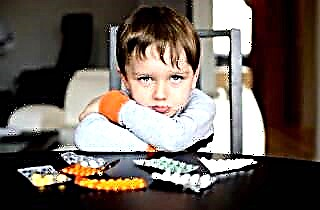 Antibiotic. Viral sore throats can be completely cured only with antibacterial drugs. Most often prescribed "Flemoklav", "Amoxiclav", "Cephalosporin", as well as drugs from the macrolide group.
Antibiotic. Viral sore throats can be completely cured only with antibacterial drugs. Most often prescribed "Flemoklav", "Amoxiclav", "Cephalosporin", as well as drugs from the macrolide group.- Means for local exposure. We are talking about sprays and aerosols, for example, about "Tantum", "Stopangin", "Miramistin" and so on. But it should be remembered that the use of such a dosage form is allowed only from the age of three (ideally, from the age of five). Until the patient reaches this age, it is better to refuse sprays.
In order to prevent relapse, to fully insure against chronic tonsillitis and possible surgery, do not forget about rinsing the nasal and oral cavity with special antiseptic drugs. They strengthen immunity well and help to effectively fight viral sore throats immunomodulators. After the acute phase of the disease has passed, the doctor may prescribe physiotherapy procedures.
You cannot select an antibiotic on your own. Only a doctor is able to take into account the individual and age characteristics of the child, prescribe the optimal group of drugs and a specific drug.
Also, don't give up on traditional medicine. They will be an excellent aid to basic drug treatment. But even before using folk recipes, we advise you to consult a doctor.
Folk remedies
Naturally, nothing can completely replace the antibiotic. But, as experience shows, the use of time-tested recipes greatly simplifies treatment and promotes a speedy recovery. So, pay attention to the following tips:
- The baby needs to regularly rinse his mouth with a solution based on basil essential oil. To do this, dissolve no more than 4 drops of essential oil in one glass of warm water. Rinsing is carried out twice a day (morning and evening) for 15-20 days.
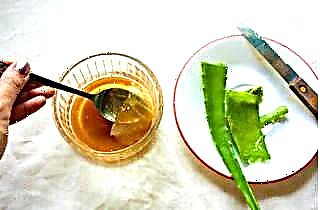 Treatment of tonsillitis in a child can be carried out with the help of a healing composition of linden honey and homemade aloe juice. We extract the juice from the plant, mix it with the beekeeping product in a one-to-one ratio and mix thoroughly until the product becomes homogeneous. It is gently applied to the inflamed tonsils three times a day for 14 days.Then, for another 2 weeks, they need to be lubricated every other day (also three times a day).
Treatment of tonsillitis in a child can be carried out with the help of a healing composition of linden honey and homemade aloe juice. We extract the juice from the plant, mix it with the beekeeping product in a one-to-one ratio and mix thoroughly until the product becomes homogeneous. It is gently applied to the inflamed tonsils three times a day for 14 days.Then, for another 2 weeks, they need to be lubricated every other day (also three times a day).- Like an antibiotic, garlic is an incredibly powerful and effective remedy for chronic tonsillitis. Squeeze the juice out of the vegetable, add the same amount of water. This solution should be gently applied to the affected tonsils for 15-30 days. If there is an individual intolerance to garlic, the recipe should be abandoned.
- Try a decoction of beets - a very effective remedy for infantile sore throats. You will need to wash and finely chop 300 g of beets, add water and put on low heat. Boil raw materials for one hour, then cool and strain. The broth is used for rinsing for 10 days (4 times a day).
- Sea buckthorn has an excellent anti-inflammatory effect. Take fresh or frozen berries and give your baby 10 of them 4 times a day. He must chew each berry carefully and slowly. The rehabilitation course lasts no more than 2 weeks.
- Vitamin formulations tone up and strengthen the immune system well. Here is a recipe for one of them. Dissolve 3-4 teaspoons of linden honey in 200 g of warm water and add less than half a spoon of pharmacy sea salt and fresh lemon juice. The product must be divided exactly into 2 servings and given to the baby twice a day - in the morning and in the evening after a meal (course duration - 10 days).
Sore throat prevention
To strengthen the immune system and protect children from tonsillitis, we advise you to pay attention to preventive measures. It is always easier to prevent any disease than to cure for a long time and persistently using a strong antibiotic. First of all, you need to normalize your sleep patterns. The child should sleep at least 8 hours a day.
Every day you need to walk in the fresh air for more than 30 minutes. The kid needs good nutrition. In winter, it is extremely important to introduce natural foods rich in vitamins and minerals into the diet.
Tempering the body is the most effective way of prevention. Teach your baby to contrast showers and cold rubdowns. Do it gradually and  only after consulting a doctor.
only after consulting a doctor.
In addition, we advise you to always cure all respiratory diseases, visit your dentist regularly (at least once every 6 months). During periods of flu and cold epidemics, after visiting crowded places, you need to rinse your mouth and throat with a light solution of potassium permanganate or iodine.
And of course, always dress your little one for the weather. Avoid hypothermia and prolonged outdoor exposure at low temperatures. All these simple tips will help you reliably protect your child from tonsillitis, make him stronger and healthier.

 Bacterial. In 90 percent of all cases of bacterial tonsillitis, pathogens are beta-hemolytic streptococcus, Haemophilus influenzae, Staphylococcus aureus and other pathogens.
Bacterial. In 90 percent of all cases of bacterial tonsillitis, pathogens are beta-hemolytic streptococcus, Haemophilus influenzae, Staphylococcus aureus and other pathogens. sore throat of varying intensity;
sore throat of varying intensity; Antibiotic. Viral sore throats can be completely cured only with antibacterial drugs. Most often prescribed "Flemoklav", "Amoxiclav", "Cephalosporin", as well as drugs from the macrolide group.
Antibiotic. Viral sore throats can be completely cured only with antibacterial drugs. Most often prescribed "Flemoklav", "Amoxiclav", "Cephalosporin", as well as drugs from the macrolide group. Treatment of tonsillitis in a child can be carried out with the help of a healing composition of linden honey and homemade aloe juice. We extract the juice from the plant, mix it with the beekeeping product in a one-to-one ratio and mix thoroughly until the product becomes homogeneous. It is gently applied to the inflamed tonsils three times a day for 14 days.Then, for another 2 weeks, they need to be lubricated every other day (also three times a day).
Treatment of tonsillitis in a child can be carried out with the help of a healing composition of linden honey and homemade aloe juice. We extract the juice from the plant, mix it with the beekeeping product in a one-to-one ratio and mix thoroughly until the product becomes homogeneous. It is gently applied to the inflamed tonsils three times a day for 14 days.Then, for another 2 weeks, they need to be lubricated every other day (also three times a day).